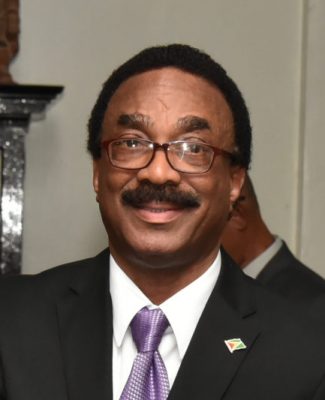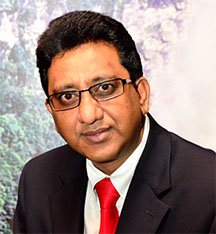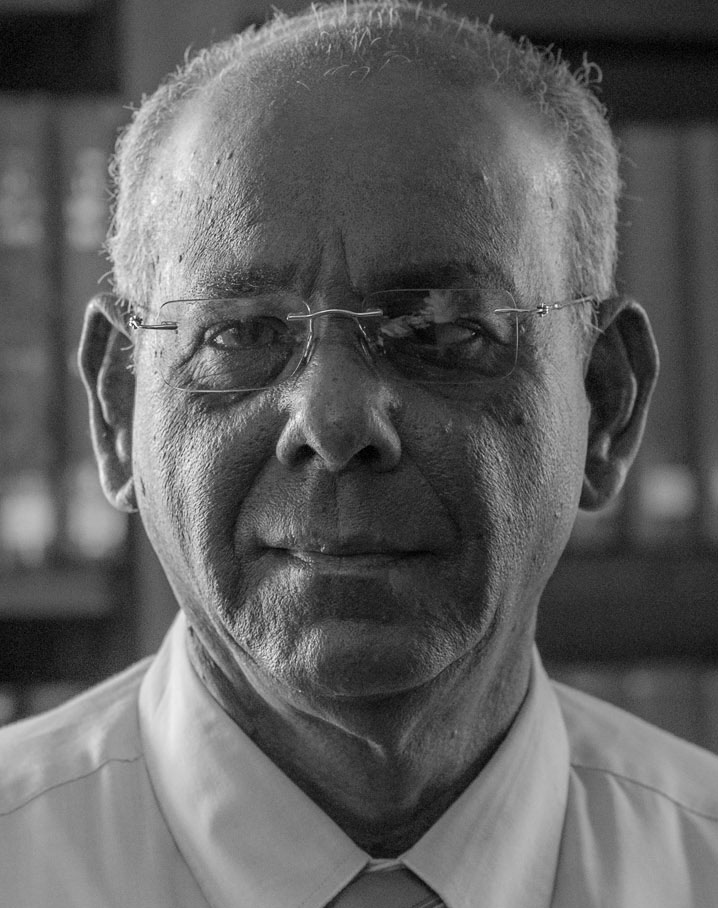Without general elections by September 18, the “ship of Guyana sails into unchartered constitutional waters and nobody knows just what will happen”, political commentator and former Speaker of the National Assembly, Ralph Ramkarran told an American Chamber of Commerce in Guyana (AmCham) event last evening at the Marriott Hotel.
AmCham organised the meeting to address the implications of the consequential orders of the Caribbean Court of Justice (CCJ) on business in Guyana. On June 18, the CCJ upheld the motion of no confidence against the APNU+AFC government and in its consequential orders of July 12 it said that the provisions of the constitution mandating general elections in 90 days from June 18 were in effect.
Three months from June 18 would be September 18 and this was the date cited by Ramkarran yesterday. The timeframe for elections can only be enlarged if two thirds of the National Assembly agrees to this. However, the opposition PPP has said it would not be returning to parliament to facilitate an extension. The PPP has argued that general elections should have been held by March 21st this year and that the government has dragged out the process and defied the constitution.

For just under three hours yesterday, the three panelists: Attorney General Basil Williams, former Attorney General Anil Nandlall and Ramkarran presented their opinions on what happens next.
In his initial presentation Ramkarran argued that post September 18 the “ship of Guyana sails into unchartered constitutional waters” and nobody knows just what will happen.
He later stressed that Guyana will be in great economic and political jeopardy and instability.
“Do you seriously think that a major company like ExxonMobil or its partners will want to promote or engage in business to the tune of millions of US dollars in a country that has a government that is unconstitutional, that isn’t supposed to be in office?” Ramkarran asked, stressing that as Guyana’s largest investor any hesitancy from ExxonMobil will have an enormous impact on the economy not just in its growth but in its international stature.

Nandlall supported Ramkarran’s assertions arguing that after September 18 there will be constitutional illegality as well as economic and social problems.
“We are on a precipice, after September 18, you will have a government that does not enjoy constitutionality and that is a state of anarchy. It will not be able to protect citizenry generally and business specifically. We are at a crossroads,” he stated, while declaring that he was “sick and tired” of having to deal with the issue.
Williams however argued that the ability of the business community to do business with government will not be impaired.
“The nature of the business which members of the Private Sector engage in with government is of a commercial nature. Any commercial transaction; routine commercial transactions are unaffected. We could still tender for
certain contracts. Those are routine matters so there is nothing impairing your ability to enter into a commercial contract with government,” he argued while reiterating that government is prepared to stand for elections on any date named by the elections commission.
Nandlall countered that routine contracts cannot build an economy.
“Routine contracts are just that routine. You cannot enter into contract that matters which are those which come from multilateral institutions,” he stressed.
Observers have noted that even the legality of contracts presided over by the National Procurement and Tender Administration Board after September 18 can be called into question.
While the panellists spent the majority of their time presenting different political positions on the no confidence motion and it impact, the audience continued to bring the focus back to more basic issues.
“I’ve heard a whole lot of jargon that I’ve been listening to for the last couple of months in reference to political agendas but there has been nothing specifically outlined about what happens in this business environment. I’ve yet to hear specific facts about impact on the economy. I need you to go step by step for an idiot like me and say what is the projected effect on the economy,” businesswoman Dawn Stuart stated.
In response, Williams stressed there will be no impact while the other panellists posited that the impact would be detrimental.
One foreign investor and political risk analyst stressed that despite political rancor what he and his clients are most interested in is a clear consensus on how issues such as the appalling state of infrastructure, lack of electricity and continued disparity between the rich and poor will be addressed.
“Can you provide assurances to investors that there is a national vision, a way forward, plans that both parties are committed to which address these problems?” he asked.
None of the panellists could give him this assurance.
“Yes, those issues are important but the foundation of a legitimate government must be there first,” Nandlall argued.
On June 18 the CCJ ruled that the December 21 no confidence motion was properly passed and that the provisions of Article 106 which calls for elections within three months had been activated. Nearly two months later an election date has not been named and members of the business community have become increasingly concerned about the possible economic impact of another stalemate.





